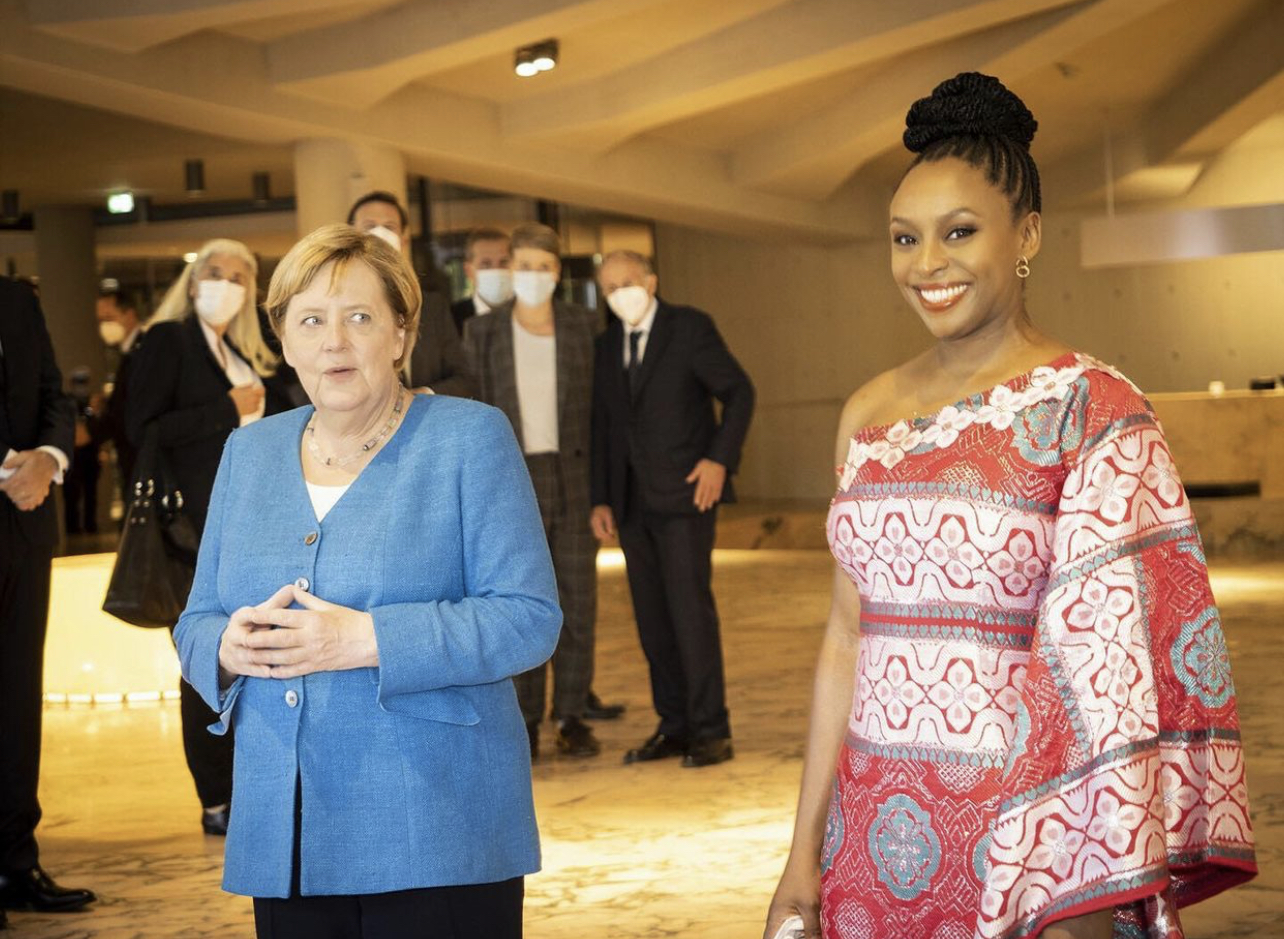
Nigerian author Chimamanda Ngozi Adichie was recently a guest speaker hosted at the Düsseldorf’s Schauspielhaus theater in September, where she sat in conversation with German Chancellor Angela Merkel. The panel was co-moderated by journalist Miriam Meckel and entrepreneur Lea Steinacker.
Adichie appeared on stage in a gown made from one of her mother’s fabric, a particularly fitting gesture since her mother was a big Merkel fan. She writes on Instagram: “What an honour and delight it was to be in conversation with her in Düsseldorf — and wearing a dress repurposed from my mother’s old ‘george’ wrapper. My mother would have been so pleased.”
The conversation, which lasted over an hour, saw the panelists touching on topics ranging from international politics, to social media, fashion, and, of course, feminism. At the event, Merkel was noted to have publicly admitted, for the very first time, that she was a feminist.
While Merkel is without doubt a feminist in practice, she has been noted to be cautious with the label. It is telling that she would, finally, embrace the tag while on stage with Adichie, an outspoken feminist figure, whose work We Should All Be Feminist have been heralded by many as a leading 21st century manifesto.
On international politics, Adichie expressed cautious optimism at the state of the world, saying she was pleased that the world was able to survive a few catastrophic events in the past year alone. However, she believes there is a failure of leadership because some of these events were very well preventable.
Both Adichie and Merkel agreed that social media, while a useful space, can be used as a tool to foster divide and spread misinformation. Adichie called for more thoroughness in digesting pieces of online information. Merkel, on the other hand, denounced cancel culture, advocating for more empathy and spaces to allow for more than one perspective.
On fashion, Adichie spoke, again, about her ‘Wear Nigerian’ project, a nationalist-driven initiative which aims to bring international attention to the creativity of Nigerian designers. Equally, in the spirit of nationalism, Adichie also raised the question of the seemingly abandoned 2018 Nigerian power project agreement with German company Siemens which had reportedly “had the backing of the German government.” Merkel, in response, promised to look into the matter, while clarifying that the likely reason for the stall might be issues related to funding and resources.
A post-Merkel era, which is set to be upon soon, holds a lot of uncertainty to Adichie. “I’m worried that Europe will fall apart because she will not be there to hold things together.” She said.
You can watch the full conversation here









COMMENTS -
Reader Interactions